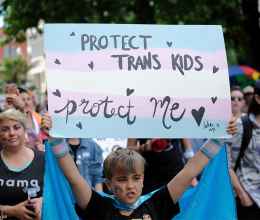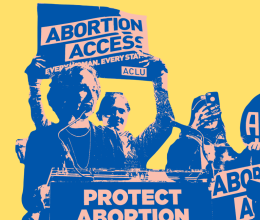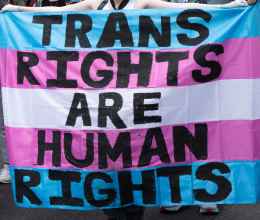
Diane used to be the person that all the other diesel technicians at ABF Freight in Albuquerque, NM went to for help. She had almost 35 years of experience working on diesel engines and knew the ins and outs of all the latest computer technology—knowledge the other technicians lacked. Every time they found themselves in a bind or at the limits of their own expertise, Diane was there to lend a hand.
But all that changed when Diane informed her supervisor in December 2015 that she was a transgender woman and would no longer conceal her identity at work. For a year, she had already been living as a woman nearly full time, but hid her transition from her colleagues out of fear that they wouldn’t understand.
For a year, she had already been living as a woman nearly full time, but hid her transition from her colleagues out of fear that they wouldn’t understand.
“I don’t know how many times it would be eight pm at night and time to go to work and I would just be sitting there crying because I had to take off my dress and take off my makeup and become the person I wasn’t—that I hated,” said Diane. “Having to switch between two people was hugely taxing."
Diane was done trying to be someone she wasn’t. Doing so for 49 years nearly cost her her life and she was ready for her colleagues to meet the real her. The first step was letting management and Human Resources know what she would require to be able to transition safely at work. Her requests were simple: she would need a separate place to comfortably change and use the restroom away from the men; a women’s uniform; and for the company to allow the Transgender Resource Center (TGRC) to offer a free educational training to prevent harassment and discrimination in the workplace.
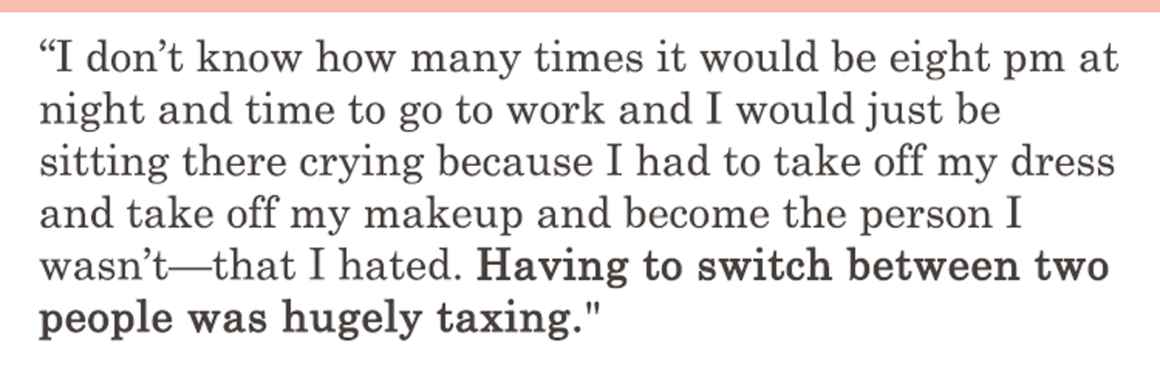
At first, they agreed to all three requests. They would convert the restroom downstairs into a woman’s restroom and changing area for Diane. They also agreed to the educational training and a new uniform. But it wasn’t long before the bathroom they designated as Diane’s was opened up to all staff and visitors to the shop, leaving her no personal space. Her colleagues—who never received the training from TGRC—drew a penis over the woman’s symbol on the door plaque and then took to putting foul-smelling items in the garbage and stealing her air fresheners to force her to endure the stench. As for a new uniform, Diane never received one.
"I hated going into work," Diane said. "But I was determined to stick it out, always with that little voice saying, 'It will get better.' 'Things will change.'"
The same people who once treated Diane with respect and deference, began to diminish and harass her. Oftentimes, they would move to the other side of the shop and refuse to even work near her. Other times, their disdain was more overt. She would walk into work and find her toolbox handle had been coated with grease or the lock had been glued shut. She’d walk out of work to find spit dripping down her windshield. Then there was the constant and deliberate misgendering she faced day in and day out.
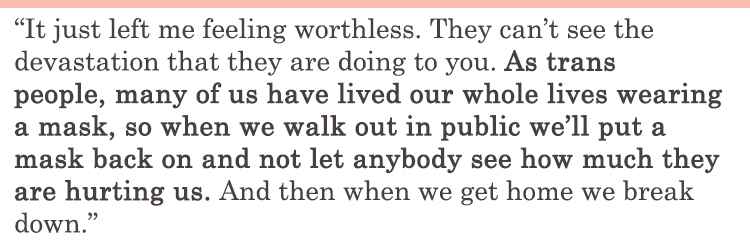
On one occasion, her coworkers blasted a radio program that bashed transgender people for three hours, pretending not to notice the pain swelling inside the woman who they once called a friend. As messages of hate and intolerance filled the shop, Diane slipped in earbuds and continued to work, pushing away the hurt.
"It wasn’t the first time management created a new policy to accommodate the prejudices of her colleagues."
Rather than address the harassment, management instituted a new policy several weeks later banning the use of headphones during work hours. It wasn’t the first time they created a new policy to accommodate the prejudices of her colleagues. Weeks prior, after an employee complained that Diane was wearing a tank top on a hot day, which was a usual practice in the shop, management created a new policy requiring staff to wear uniform tops at all times.
“It just left me feeling worthless,” Diane said. “They can’t see the devastation that they are doing to you. As trans people, many of us have lived our whole lives wearing a mask, so when we walk out in public we’ll put a mask back on and not let anybody see how much they are hurting us. And then when we get home we break down.”
Harassment Takes Its Toll
The constant harassment took its toll on Diane. Panic and dread often kept her awake at night. Then, depression would settle in and hold her in its grip. She couldn’t sleep, but she also couldn’t move from her bed.
On a number of occasions, her depression and anxiety were so severe her doctor advised her not to go to work. She would provide doctor’s notes, but management always seemed to find something wrong with them and then discipline her. They claimed she needed originals instead of copies, or that she needed to turn in her doctor notes over the weekend rather than on weekdays. From day to day the policies seemed to change according to the whims of management—part of a pattern of retaliation against her for bringing concerns of harassment and discrimination to their attention.
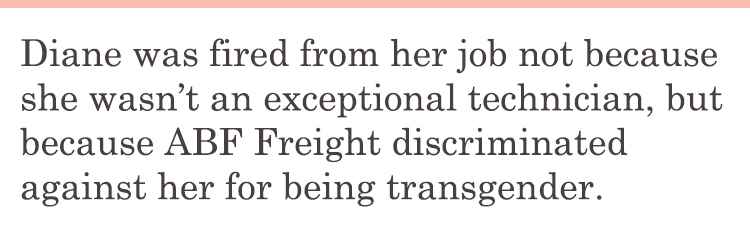
By the summer of 2017, what little hope she had left that her situation would improve was extinguished. Drowning in darkness and despair, Diane was forced to take medical leave in order to seek treatment for severe depression and Post Traumatic Stress Disorder.
While she was on leave, ABF Freight fired her.
Diane was fired from her job not because she wasn’t an exceptional technician, but because ABF Freight discriminated against her for being transgender.
Discrimination Against Trans People a Nationwide Epidemic
Diane is not alone in the discrimination she faced. Thirty percent of respondents to the 2015 U.S. Transgender Survey reported being fired, denied a promotion, or experiencing mistreatment at their jobs because of their gender identity or expression in the past year. Economically marginalized, trans people are more than twice as likely as the U.S. population to be living in poverty, and transgender people of color are three times as likely as the the rest of the population to be living in poverty.
The Trump administration has spared no opportunity to expose trans people to even greater harms. For nearly two decades, federal appeals courts have ruled that anti-trans discrimination is a form of sex discrimination that violates federal law. The Equal Employment Opportunity Commission, charged with enforcing civil rights laws against workplace discrimination, has agreed, taking the position that sex discrimination includes discrimination on the basis of gender identity and sexual orientation.
For nearly two decades, federal appeals courts have ruled that anti-trans discrimination is a form of sex discrimination that violates federal law.
The Trump administration has sought to change that, asking the Supreme Court in three landmark cases—two of which the national ACLU is arguing —to rule that it’s legal to discriminate against LGBTQ people. Such a ruling would be particularly devastating for LGBTQ people who work in one of the 26 states that lack laws prohibiting discrimination on the basis of gender identity and sexual orientation.
Fortunately, the New Mexico Human Rights Act explicitly protects LGBTQ people from employment discrimination, providing an avenue for New Mexicans to fight back. And that’s just what Diane did.
Fighting Back
After she was terminated, Diane filed a complaint with the Human Rights Bureau against ABF Freight, alleging discrimination on the basis of sex, gender identity, and disability (for her mental health diagnosis). In July, the bureau issued a determination of probable cause that ABF Freight had violated the New Mexico Human Rights Act, and found additional probable cause that ABF Freight retaliated against Diane for engaging in protected activities.
“They terminated me because I was trans,” Diane said. “And being transgender didn’t make a difference in my job performance. Honestly, I would have been fine if everyone would have just left me alone.”
Following the bureau’s findings, the ACLU of New Mexico along with cooperating attorney Mark Chaiken filed a lawsuit against ABF Freight for perpetuating a hostile and discriminatory work environment and ultimately firing Diane for being transgender.
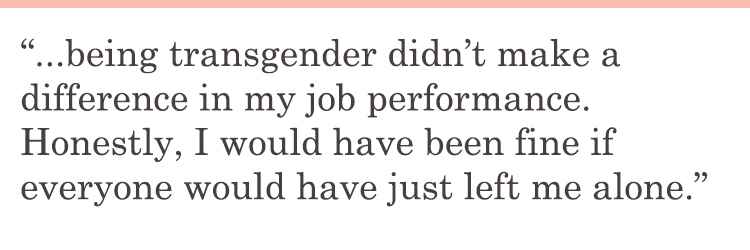
“This type of discrimination is not only against the law in New Mexico but it is also against our values as New Mexicans,” said ACLU of New Mexico Legal Director Leon Howard. “Nobody should ever have to dread going into work every day out of fear they will be harassed or worry they will be fired from their jobs simply for being who they are.”
Through the lawsuit, Diane hopes to send a message to companies in New Mexico and beyond that discrimination against LGBTQ people will not be tolerated.
“I want to see an example made of ABF Freight so other companies will think twice before doing this,” Diane said. “I feel that I’m not the only person they’ve done this to. They’ve probably done this over and over and gotten away with it. This time I wasn’t going to let them get away with it.”
Despite Her Job Loss, Diane Has Never Regretted Transition
While Diane continues her fight and advocacy work on behalf of the transgender community, she’s also busy living the life she waited decades to live.
“I have never regretted transitioning because if it wasn’t for transitioning I wouldn’t be alive..."
“I have never regretted transitioning because if it wasn’t for transitioning I wouldn’t be alive,” Diane said. “Before, I literally hated the person in the mirror and didn’t understand why. Now when I look in the mirror, I see the person I was supposed to be the whole time and I love the person I am.”
The ACLU will keep fighting in New Mexico and beyond so that people like Diane don’t have to decide between two impossible choices—being oneself while enduring humiliating and degrading treatment or hiding in abject suffering to appease others. The cost of both is too high.
